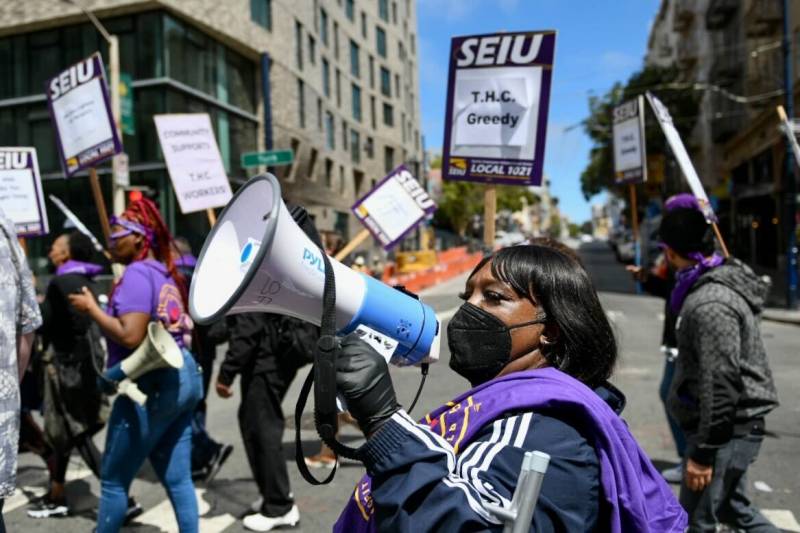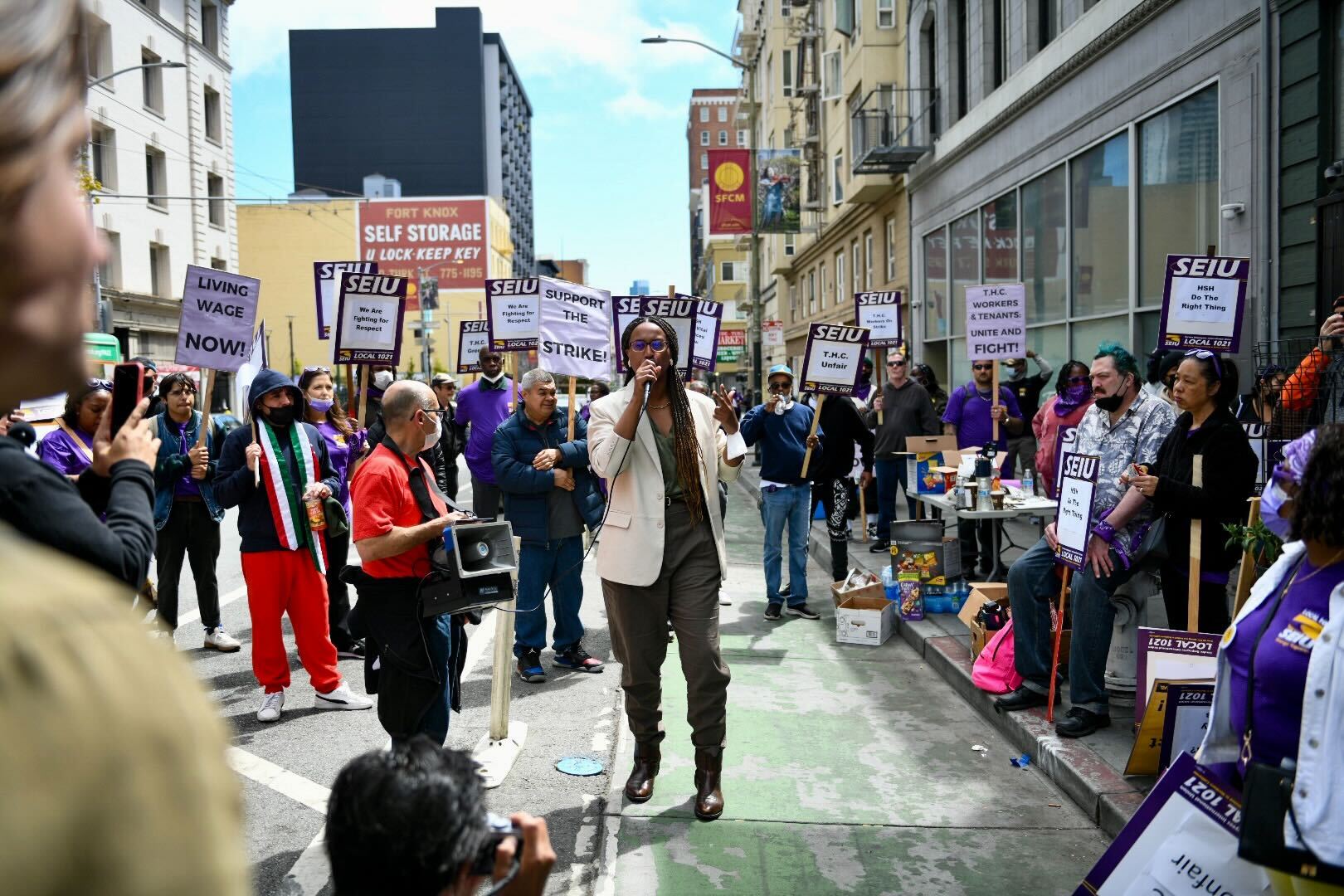Hundreds of employees with the Tenderloin Housing Clinic (THC), one of the largest providers of supportive housing in San Francisco, went on a one-day strike Wednesday in a bid for higher pay.
The case managers, janitors and desk and maintenance staff that keep the clinic’s single-residency occupancy (SRO) hotels running said they had reached a breaking point after eight months of contract negotiations, according to SEIU Local 1021, the union representing them.
As demonstrators stood on the picket line Wednesday, Mayor London Breed signed a $14 billion two-year budget that includes funding for modest pay raises for some city-funded nonprofit employees — a bump that many workers argue still falls far short of what they need to make a living wage.
Hattie Patterson, who has worked as a desk clerk for nine years at the Vincent Hotel, said she currently makes $19 an hour, and worries her wage won’t rise at all under the current deal. She said she needs to make at least $21 an hour — which is the upper limit of the city’s proposed new pay scale for workers like her.
“We just ask them for a decent wage … so that way everyone will get a raise. No one would be left out. That’s what we’re fighting for,” said Patterson, as she stood on the picket line.

Some workers are also calling on the city to make permanent the $5 an hour hazard-pay increase they were offered at the beginning of the pandemic, arguing that the physical and mental health risks of the job remain high.


